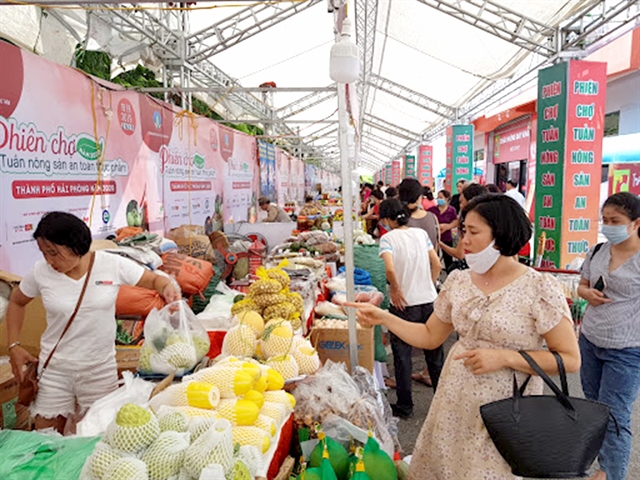The HCM City Department of Industry and Trade held a conference on Thursday to review the activities and performance of the food and foodstuff sector in 2020 and consider plans for the new year.

The HCM City Department of Industry and Trade held a conference on Thursday to review the activities and performance of the food and foodstuff sector in 2020 and consider plans for the new year.
Ly Kim Chi, chairwoman of the HCM City Food and Foodstuff Association, said the sector’s output last year was only 0.7 per cent down from 2019, thanks to efforts by the government to both combat the COVID-19 pandemic and keep the economy going.
As for plans for 2021, she called on the department to organise more trade promotions to help businesses promote their products and expand their market.
Besides, there has been a surge in demand for healthy foods and immune-boosting, natural and organic produce globally, including in Viet Nam, amid the pandemic.
Vu Ba Phu, director of the Viet Nam Trade Promotion Agency, said cooking and eating at home has become increasingly common and HCM City’s food industry must be in tune with this trend to sustain development.
At the same time, consumers have become increasingly aware of environmental protection, especially in affluent markets.
The global market for plant-based foods and products replacing meat is estimated to reach US$480.43 billion by 2024, which offers producers of these products a great opportunity, she said.
Globally consumers want food brands to be more transparent by providing information about their supply chain and consistent nutrition information while enhancing environmental protection, she said.
They also want food brands to come up with more plant-based products and those that could be cooked in multiple ways, she said.
“By ensuring traceability, enterprises will have an opportunity to raise the competitiveness of their products, their brands’ prestige and their profile in the market,".
Delegates quoted recent market research as saying products with traceability and reliable quality with embedded sustainable economic, social, and environmental values are favoured by consumers.
To survive and thrive, food producers must adopt new business models by combining online and offline distribution, embrace digitisation, apply technology in the value chain from farm to table, and improve product quality and value and the customer experience, they added. — VNS





